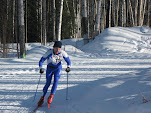I don't actually know who reads this blog, but a few do here and there. Mostly friends and acquaintnances who sometimes surprise me by saying they read a posting. I never did want this to be only personal race reports--which often it is, because I tend to neglect it until a race comes along. As a masters athlete and long time coach of adult and youth runners I do a lot of thinking about training--getting athletes ready for upcoming races.
I read a lot too. Below are summaries from three books from coach/authors that I think are pretty good: Joe Vigil, Jack Daniels, and Larry Greene. Actually I know less about Greene as a coach, but his book
Training for Young Distance Runners is full of sound advice.
Anyway, after a base period and build up (that includes a decent amount of training, say 6-10 hours a week of aerobic work that includes over distance, some fartlek and/or hill training, and tempo-threshold running) what do you do next to get yourself or athletes you coach ready for peak racing, say six or eight weeks ahead?
A pattern in all three of the books I summarize below (not to mention any other of a half dozen training guides) includes continued endurance training with a long run and threshold training at least every week or two, some speed work (usually at mile pace or a little faster, repetitions of 200 to 800 meters), and pace work (usually repetitions of 600 m to 1600 m) which simulates race conditions (while promoting development of V02 max, the body's ability to process oxygen in about 10 to 15 minutes). Twenty or twenty five years ago, it seemed that developing V02 max was what it was all about. That theory has sort of fallen out of favor, with more and more emphasis on lactate threshold training.
Nevertheless, most training guides recommend some consistency (every week or two) of training at 3000-5000 m race pace (in addition to races or time trials), especially early in the season. If you wait too long, like peak season, then you risk overtraining at a time when your focus should be sharpening/development of speed.
Check these out. Something to think about while we wait for the snow to melt (3-4 feet now!).
Vigil (1995), Road to the Top
Chapter 6: 3,000 Steeplechase, 3,000 & 5000 meter Training
Precompetitive Microcycle (7 day)
Long run
400 m workout (6-12 reps at mile pace)
Recovery run [or rest]
Recovery run with 6X 150 m strides
Repeat miles, 800s, 1000s at 85-90% maximum (which is approximately 5K-3K pace)
Recovery run
Competition or 20 minutes of threshold (alternating weeks)
Daniels (2005) Daniels’ Running Formula
Chapter 17: 1500 to 3000 meters
Precompetition Phase
Quality Workout 1: sets of 1000, 1200, 1 mile repetitions at “Interval” Pace (i.e., V02 max which is 15-20 sec/mile slower than mile race pace)
Quality Workout 2: sets of 2X 1000 or 1200 or 1 mile repetitions at Threshold Pace followed by 4X 200 m at 1 Mile Race Pace
Quality Workout 3: Race or repetitions (from 200 to 800 m) at 1 Mile Race Pace
Distance Day (>1 hr to 2 hr)
Recovery Runs (one or two days a week)
Greene and Pate (2004), Training for Young Distance Runners
Chapter 7: Race Specific Training. This chapter is organized a little differently and the authors do not prescribe weekly schedules; rather they break it down to sections Developing Aerobic Fitness, Anaerobic Fitness, and Race-Specific Fitness and provide some sample workouts.
Here are sample workouts for 3000 m, 5000m and Cross Country for Intermediate and Advanced runners:
Early Preparation Phase Aerobic: Interval and Continuous Tempo Running
Early Preparation Phase Anaerobic: 4X400, 2X600, 2X200 (mile pace, or faster)
Early Preparation Phase Race Specific 3000 m : 2X 1000 (at 3K race pace) with 60 sec recovery
Developing Race Specific Mental Fitness: 3X 1000 meters at goal pace for even paced running (and also provides examples for negative split racing, front running, and kicking [I interpret this type of workout to be 2-4 weeks before peak races]).


0 Comments:
Post a Comment
Subscribe to Post Comments [Atom]
<< Home